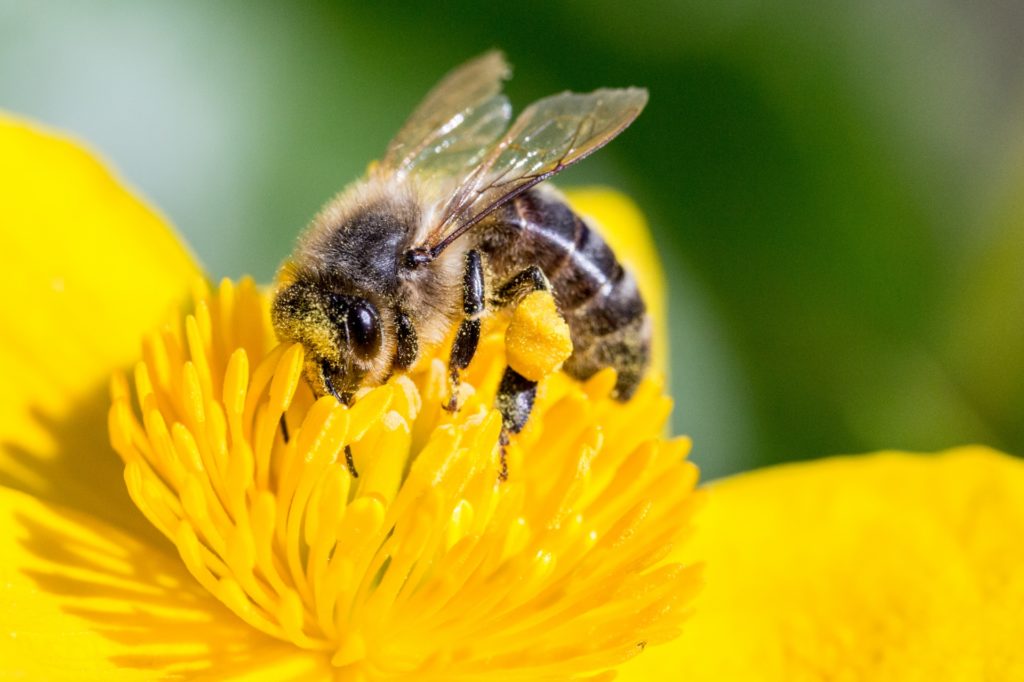EU Parliament follows the Party for the Animals and wants action against bee mortality and bee pesticides
Last week, the European Parliament adopted a resolution which asks the European Commission and its Member States to help protect the bees. Additionally, the Parliament supported a proposal to ban the poisonous insecticide neonicotinoids completely. With this, the European Parliament follows previous national and European calls from the Dutch Party for the Animals.

The Parliament believes that an EU-wide plan is needed to stop bee mortality and strengthen the reduced bee population. The reason for the resolution is a report of the European Food Safety Authorities EFSA. They reported last week that bees, bumblebees and other insects are at risk because of the use of insecticides, such as neonicotinoids. Furthermore, EFSA said that the EU restrictions that were introduced in 2013 are insufficient to control the risks.
A research published in a scientific magazine showed that neonicotinoids are not only a threat for bees, but also for other animal species in the ecosystem.
Research
The European Parliament believes that more research is needed into crop protection agents that are not harmful to bees. All agents that make bees ill must be banned as soon as this is scientifically proven. Growers must also be told in which periods the bees are sensitive to insecticides. They can then adjust their spray strategy to this. Also, a proposal by the Party for the Animals among others, to set up protected areas for honey bees, was supported by the Parliament.
Enough environmental alternatives|
Governments have doubts about banning neonicotinoids because there would not be any alternatives for agriculture, but according to a new survey study there are enough environmental-friendly alternatives that are not harmful and can still make agriculture profitable. Scientists researched two hundred studies that had been published since 2014 and concluded that alternatives are cheaper, often just as effective and sometimes even better, but have in any case a better effect on the environment.
As a result of the large-scale use of pesticides, the number of bees and other insects is still declining. We can’t do without bees for our food security. Fewer bees also means fewer vegetables on the shelves. Eighty percent of all plants on earth are dependent on pollination by bees for their reproduction or evolution. In China among other countries they already pollinate by hand because there are too few insects left.
Complete ban on neonicotinoids
In March 2017, the European Commission made a proposal to completely ban three neonicotinoids, except for their use in greenhouses. But national governments still have to vote on this measure on 22 March. Eleven countries are in favour of a ban, but it is still uncertain what the Netherlands will decide.
The Party for the Animals as driver
The Party for the Animals has been fighting for a ban on neonicotinoids among others since its arrival in politics. It resulted in a motion for a European moratorium on these pesticides at the start of 2013. Although the European Commission placed several restrictions on the use of these types of agricultural pesticides since then, the measures are completely inadequate to take away the threats for bees and other organisms.
That is why the party continued urging for a national ban. On 18 March 2014, its motions that called for a ban by the government were supported. But unfortunately, the Dutch government showed little action. On 22 March, the Netherlands will get another chance and the Party for the Animals calls on the Minister of Agriculture Carola Schouten to then support the proposed EU ban on neonicotinoids.